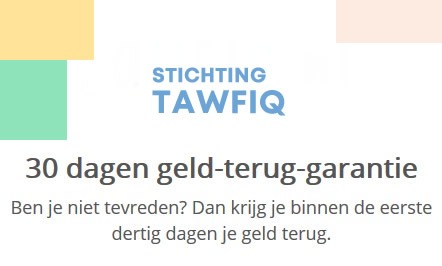-
Islamic knowledge, education and training
- How the Islamic principles of respect for authority can help raise children.
- How parents can teach their children to show respect for authority through Islamic principles.
- The role religion plays in teaching respect for authority to children in an Islamic family.
- Why it is important that parents teach their children to show respect for authority according to Islamic principles and why this can be so effective in raising children to be responsible and disciplined.
- How parents can help their children pay tribute to those who guide them, such as teachers, coaches and other adults they interact with, according to the Islamic principles of respect for authority figures
“Raising with respect for authority: Islamic principles, a lifestyle that teaches you to grow!”
Education to respect authority is an important part of Islamic education. It is a fundamental principle that teaches children to respect their parents, teachers and other authority figures. Respect for authority means not only that children obey what their parents or teachers say, but also that they show understanding and appreciation for the efforts these people make to help them. In this article we will look at different ways in which Islamic principles can be used to raise children to respect authority. We will focus on the importance of strengthening good relationships between parents and children, increasing understanding between student and teacher, and how religious principles can be used to assist children in the developmental process.
How the Islamic principles of respect for authority can help raise children.
The Islamic principles of respect for authority can be a great help in raising children. Respect for authority is an important part of Islam, and it can help to teach children to treat their parents, teachers, and other adults with respect. It can also help teach responsibility and discipline.
First and foremost, it must be emphasized that respectful communication between parents and children is essential. Parents should always treat their children with respect, even when they are angry or disappointed in them. Children should be taught that they should always treat their parents with respect, no matter what happens. This does not mean that they should blindly accept everything their parents say; but if discussions do take place, they should be done in a respectful manner.
In addition, the principles of Islam can help encourage responsibility in children through consistent behavioral patterns. Children learn through consistent limits set by adults; such as clearly stated rules about homework or bedtimes that are consistently applied by all parties involved (parents/teachers). If rules are not applied consistently, problematic situations can arise where children take over control instead of adults.
Finally, the principles of respect for authority can help protect children from harmful behavior such as bullying or drug or alcohol abuse. By teaching children to treat other people respectfully, they will subsequently be less likely to engage in inappropriate behavior that can threaten their safety and the sense of security of other people around them.
In summary, we suggested above that Islam's principles of respect for authority help with child rearing by encouraging responsibility, consistent boundary setting, and preventing dangerous behavior. By teaching children to always treat their parents with respect, they will become reliable citizens who make good choices in their personal lives and also in society.
How parents can teach their children to show respect for authority through Islamic principles.
Parents can teach their children to show respect for authority through Islamic principles by teaching them that Allah is the one true Authority. Children should be taught to show respect to those in authority, such as parents, teachers, and other adult figures. Parents can also teach their children to commit themselves to following the rules imposed by these authority figures.
Parents can also help their children understand why it is important to show respect for authority. For example, they may explain that Allah has commanded us to treat our parents with respect and love, as well as all other characters in real or perceived positions of authority. It can also be explained that we only achieve good things if we adjust our attitude towards those above us in rank or status.
Finally, respect for authority figures can be cultivated in children by raising them with discipline and consistency when they do not do what is expected of them. By applying consistency they will understand why it is important to act respectfully towards other people
The role religion plays in teaching respect for authority to children in an Islamic family.
In an Islamic family, religion plays an important role in teaching children respect for authority. Respect for authority is a fundamental part of the Islamic lifestyle and is taught by parents as a way to help their children develop into responsible adults. Parents can teach their children to be respectful by teaching them the principles of the Quran and other religious sources, including the ability to treat authority figures with respect.
Parents can also teach their children how to respond to different situations where they encounter authority, such as at school or at home. For example, they can explain to them that they always listen to what is said and that they never talk back or argue with anyone above them in rank or status. Parents can also tell their children about the many beneficial aspects of showing respect for authority, such as gaining more trust and better relationships with other people.
Finally, religion can also be helpful in teaching respect for authority through prayer and meditation, making children better able to think calmly about what is being said and how to respond to it. Expressing things like gratitude to God for all that he does can show understanding toward other people who are above you in rank or status.
Why it is important that parents teach their children to show respect for authority according to Islamic principles and why this can be so effective in raising children to be responsible and disciplined.
It is important that parents teach their children to show respect for authority according to Islamic principles, as this is an effective way to help children learn responsibility and discipline. Respect for authority means that children listen to their parents, teachers and other adults involved in their lives. It also means that they obey rules and instructions given by these people.
By encouraging respectful attitudes toward authority figures, parents can ensure that their children take responsibility for their actions. In this way, children learn to take responsibility for what they do and how they react to situations in which they find themselves. They are more likely to develop discipline as a result of behaving respectfully toward authority figures rather than simply out of fear or coercion.
Islamic principles emphasize the importance of respectful behavior towards other people, making it easier for children to do things well such as listening to what is said, obeying rules and instructions and so on. By assisting them in this, parents can provide the experience that is necessary to learn responsibility and discipline that are necessary in daily life.
How parents can help their children pay tribute to those who guide them, such as teachers, coaches and other adults they interact with, according to the Islamic principles of respect for authority figures
Parents can help their children pay tribute to those who guide them, such as teachers, coaches and other adults they interact with, according to the Islamic principles of respect for authority figures. This can be done by giving advice on how to behave in their presence. For example, children should always speak respectfully and listen to what authority figures say. They must also behave in a way that suits the situation; for example, when a lesson is being taught, the child must sit still and listen to what is being said. Parents can also teach their children to respond respectfully when someone asks them something or gives them instructions. Finally, parents can help their children by showing them appreciation for those who lead them by expressing gratitude or giving compliments when necessary. The conclusion is that raising respect for authority is an important part of Islamic principles. It is important to teach children to respect their parents, teachers and other authorities. This helps them become good citizens who follow the rules and take responsibility for their actions. By learning values such as honesty, integrity and responsibility, children can learn to treat authority with respect.







